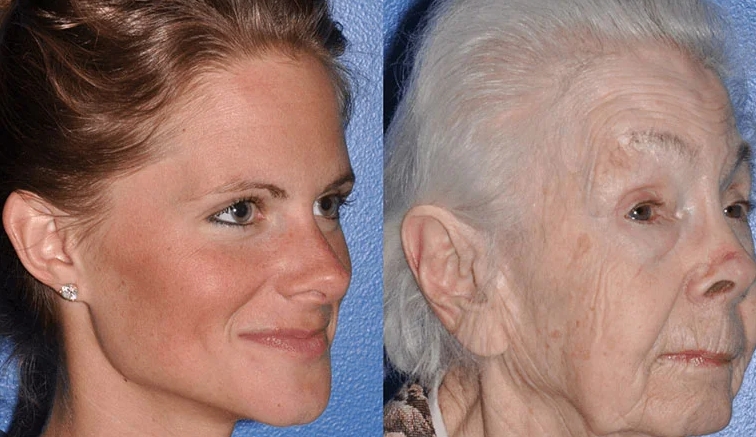As we age, it is clear that men and women’s faces don’t age in the same way. This difference has long puzzled researchers and scientists. However, recent studies have shed light on the science behind why women’s faces age differently than men’s.
Hormones Play a Key Role
One of the main reasons for this difference is the impact of hormones on the skin. Women have higher levels of estrogen, which helps to keep the skin hydrated and maintain its elasticity. As women age and estrogen levels decline, the skin becomes drier and less firm, leading to the development of wrinkles and fine lines.
Men, on the other hand, have higher levels of testosterone, which can actually thicken the skin and provide more protection against aging. This is why men tend to have thicker skin and fewer wrinkles compared to women.
Collagen Production Differs
Collagen is a protein that provides structure and support to the skin. As we age, collagen production naturally decreases, leading to sagging and wrinkles. Women tend to have less collagen than men to begin with, which means that they are more prone to the effects of aging on the skin.
Sun Exposure Makes a Difference
Exposure to the sun’s harmful UV rays is a major factor in aging skin. Women tend to spend more time outdoors and often neglect to use sunscreen, leading to sun damage and premature aging. Men, on the other hand, are more likely to wear protective clothing and use sunscreen, which can help to slow down the aging process.
Lifestyle Choices Matter
Aside from hormones and genetics, lifestyle choices also play a significant role in how our faces age. Factors such as smoking, diet, and stress can all impact the skin and contribute to the development of wrinkles and fine lines. Women are more likely to engage in unhealthy habits, which can accelerate the aging process.
In conclusion, the differences in how men and women’s faces age can be attributed to a combination of hormones, genetics, sun exposure, and lifestyle choices. By understanding these factors, we can take steps to slow down the aging process and maintain youthful-looking skin for longer.

